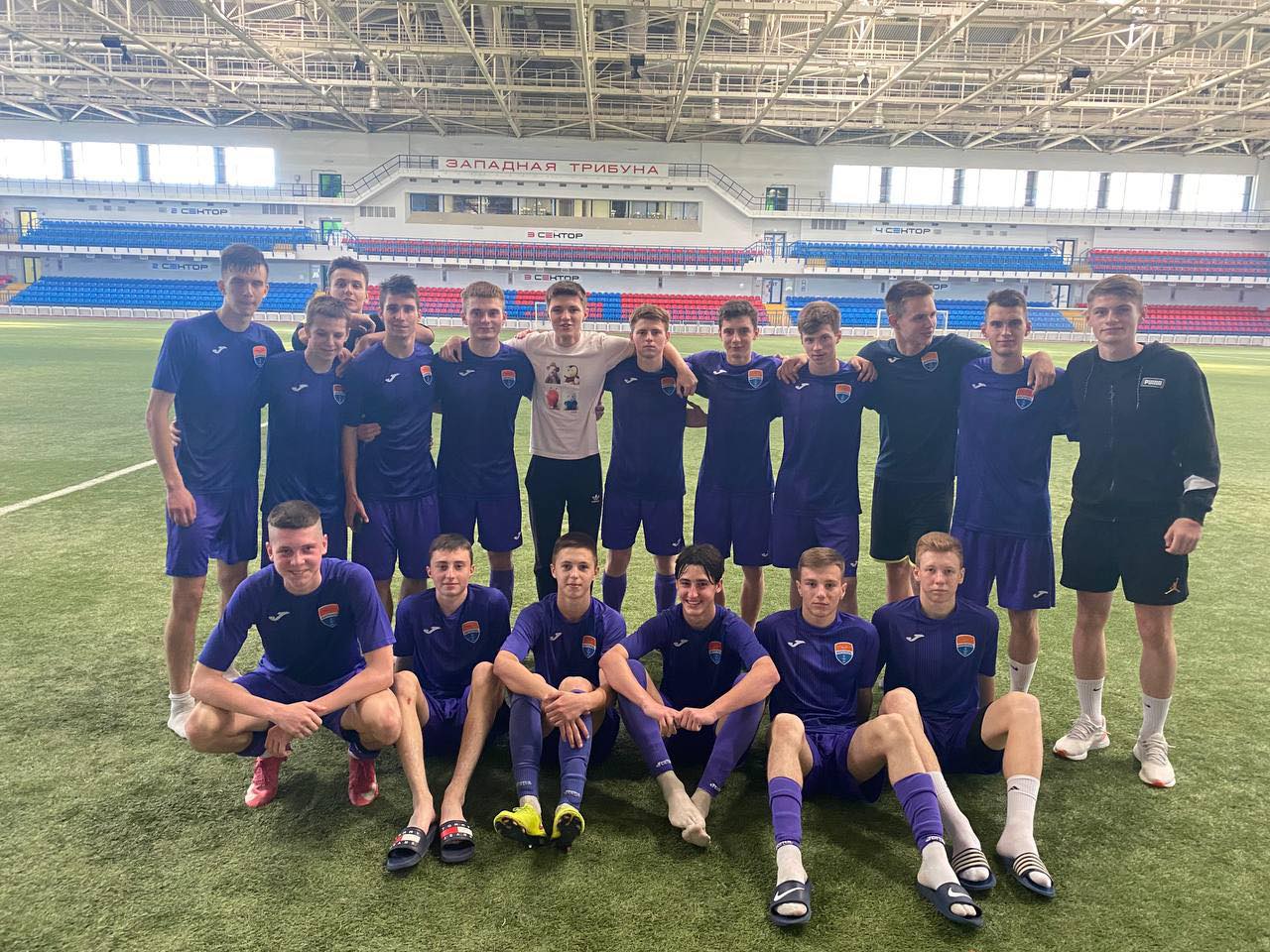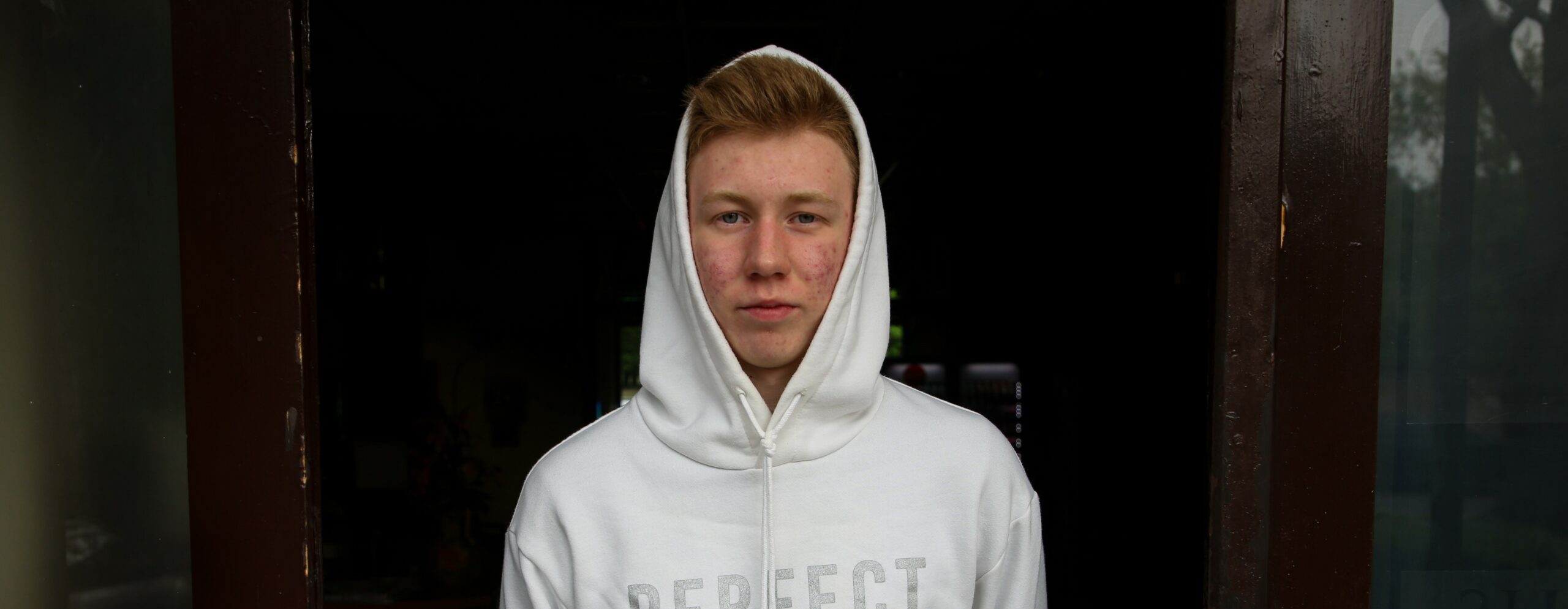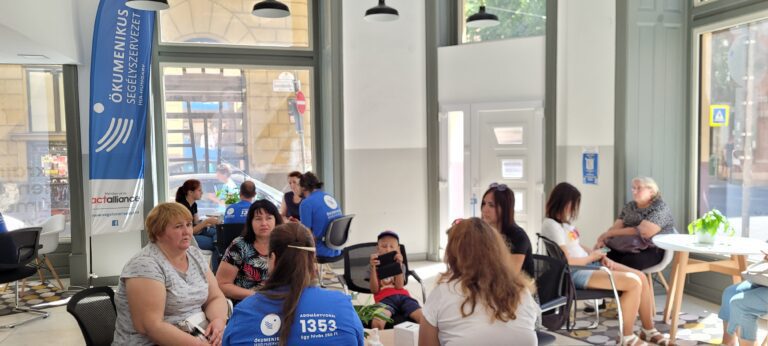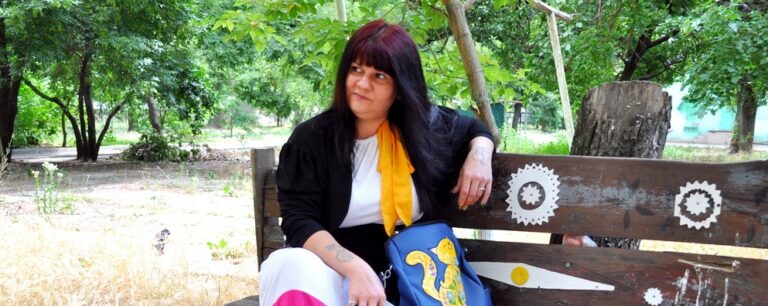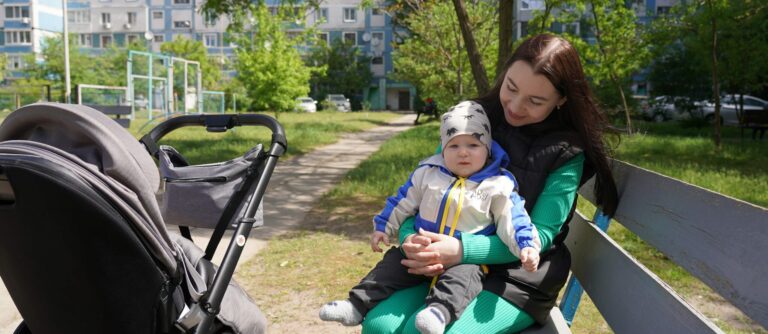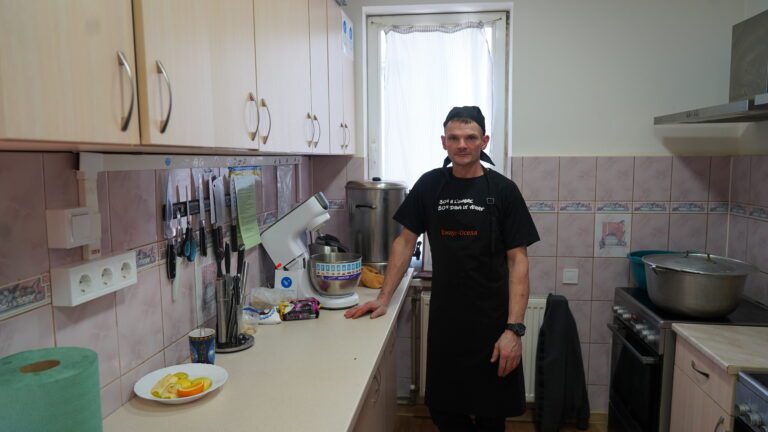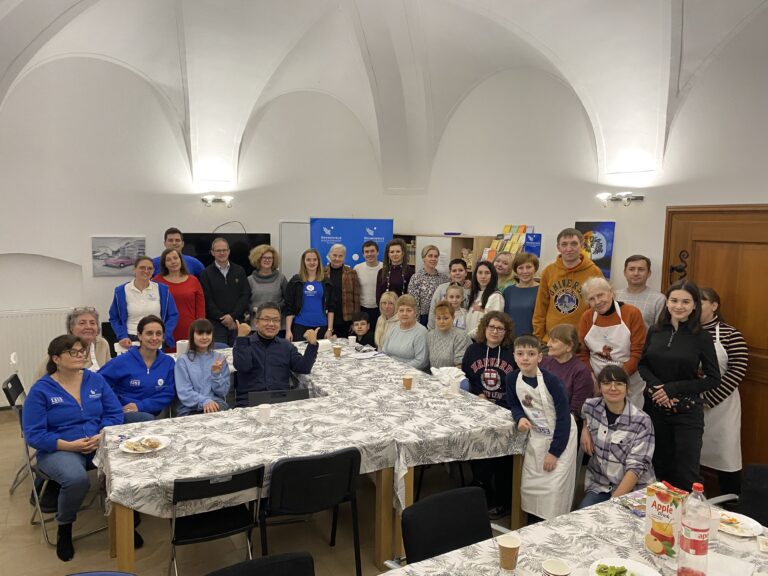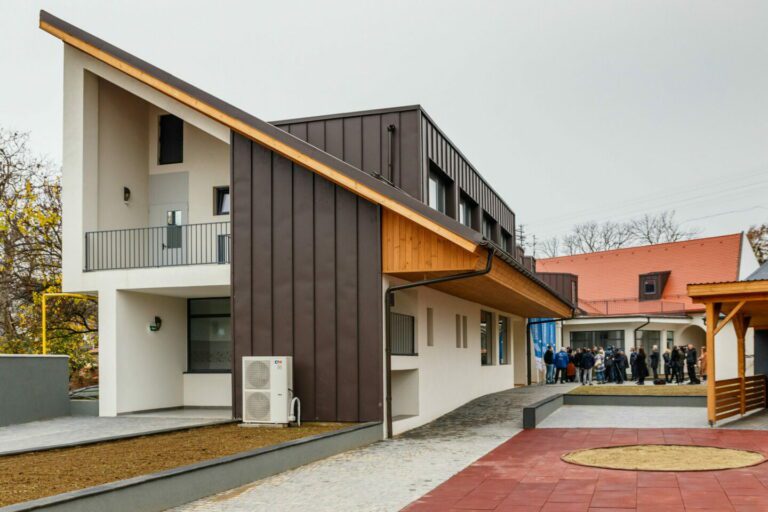Refugee Stories: Dima from Mariupol
Dmitry Nazarenko (18) is a refugee from Mariupol, Ukraine. Having arrived in Hungary in April, he already started working night shifts at a warehouse. He lives in a temporary accommodation for refugees provided by Hungarian Interchurch Aid, but at least he is not alone: Dima came with his girlfriend, Anna (17). But he misses his parents, his former life, peace and most importantly: football. We joined him on his way to work.
What was it like when you first heard that Russia invaded?
It was 5 in the morning, I was still asleep – then I got a phone call, two actually. First my girlfriend, Anna called me, then my father’s girlfriend. They said that the Russians have started bombing Ukraine and that we should hurry and withdraw cash from the ATM. My father actually works in Europe and receives his salary in Euros, so we needed to hurry if we wanted to withdraw it like that.
Was your father with you in Mariupol?
He was, even though he works in Lithuania driving trucks. He usually drives for 3 months at once, then takes a rest and spends 1 or 2 months at home. He should have returned to work on the 25th, traveling through Kyiv – this was made impossible by the invasion.
How was Mariupol during the siege?
Ever since the start of the war it was difficult to leave the city, there was fighting in the surroundings and nearby villages after just a couple of days. That was the reason not many people could flee the city in time, almost everyone stayed. In the beginning, you could buy food, but soon there was a shortage of everything. After that, farmers and entrepreneurs from the surrounding areas brought food to the city. By smuggling, or how? Who knows, but they managed to. Some of the food was sold, but some was also distributed amongst those in need.
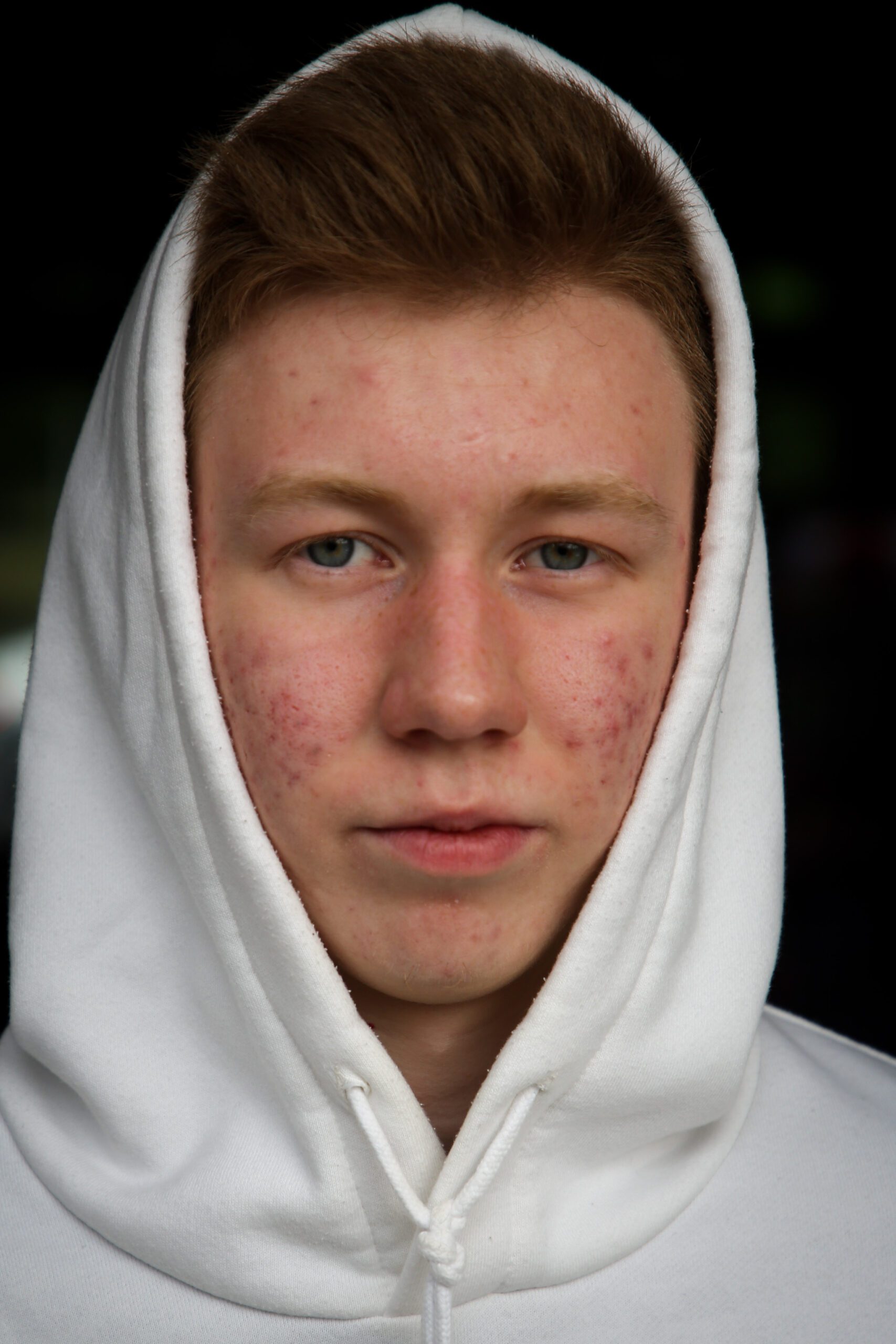

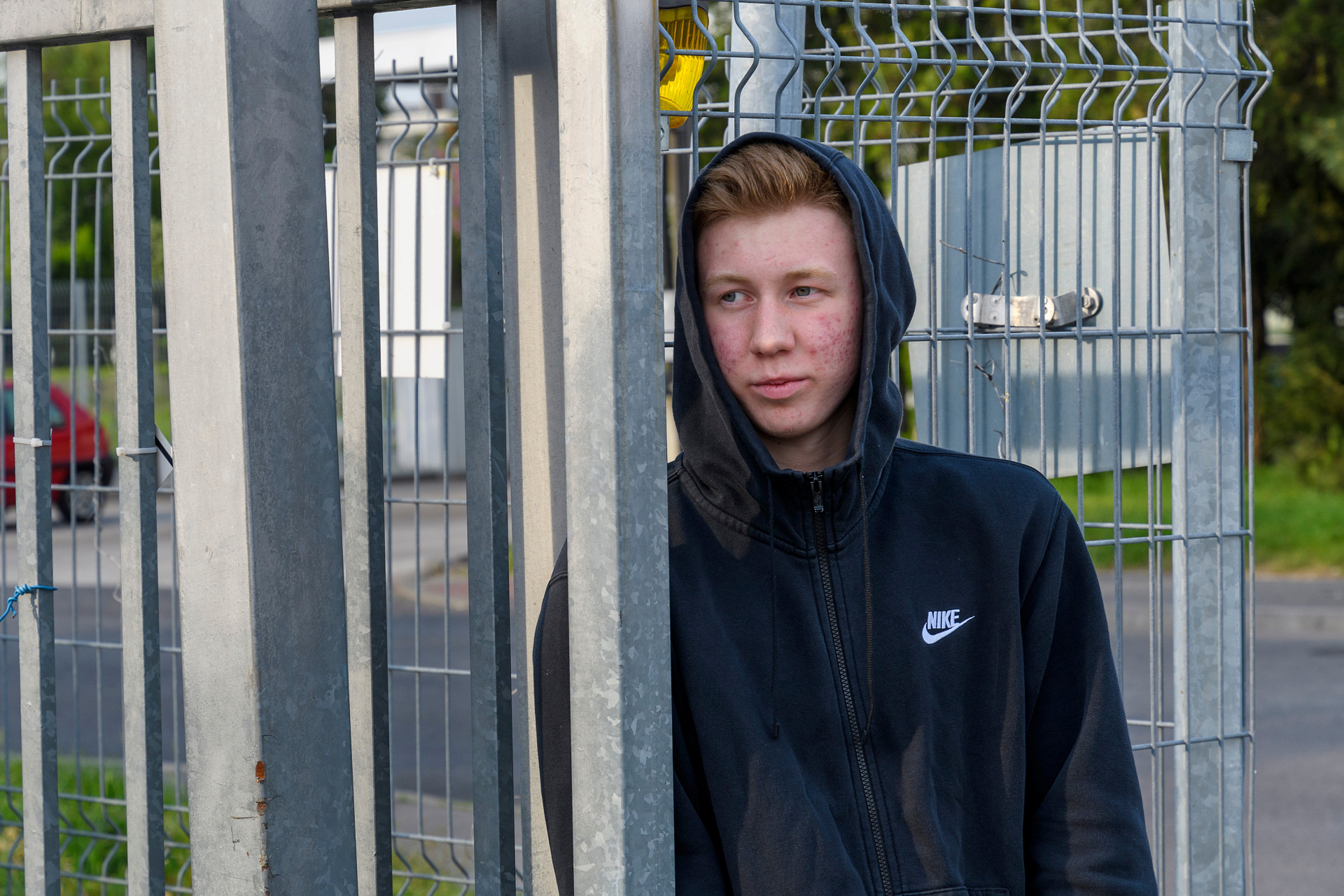

How did you manage to flee the city?
In the beginning, we tried to survive the siege in the city, we were really afraid to leave it. When the fighting moved to the parts downtown we realised that we needed to go, we cannot stay any longer. So, I took my girlfriend and we walked to relatives at the edge of the city, and spent the night there. From here a friend of mine took us in his car to Donetsk, where Anna’s family is from. This was a very bold move, we had no idea if there’d be problems with the checkpoints going out of the city. My father, mother and all relatives stayed behind, they were afraid to go still.
So you fled to the DPR, and then through Russia. Was there no other possibility for you?
“No, really by then it was impossible to cross through frontlines into Ukrainian-controlled territory. On the other hand, Russia was already organising buses for anyone that wanted to go there. We also heard that travel was possible to Donetsk. We had no idea, where the organised buses which the invaders advertised would take us, so we did not want to go with them. We needed to prepare our own escape plan, a risky one. They could’ve turned us around at any checkpoint, but they didn’t, we managed to go through to Donetsk, where we stayed at Anna’s mother’s place.”
What was the next step?
We spent almost a month in Donetsk, planning and organising. We found a man, who agreed to take us to the Russian border, which we were to pass on foot. We were so scared, will they let us through, what will they do to us? The border guards checked everything, searched us from head to toe. They took my passport and my phone and looked at it for over an hour, but it seemed like so much more. Interestingly, they weren’t bothered by Anna’s stuff at all, only searched boys and men. They checked all my messaging, social media, my posts, pictures… But in the end they found nothing of interest, so we were able to cross into Russia. On the other side there was already a man waiting for us, just like we organised it in Donetsk. He took us to the railway station in Rostov-on-Don, we arrived there by midnight. From here we took the morning train to St Petersburg at 4AM.
And all the while you never had any problems with your Ukrainian travel documents?
To be honest, no – apart from the searching at the checkpoints, but not inside Russia, no. The conductor checked our passports before boarding the train – as it is custom in Russia – and made sure that our tickets are valid. It’s not like we look any different from them, but of course we tried not to act conspicuous.
From St. Petersburg you went straight to the Estonian border – what was crossing into Europe like?
On the border, you had to fill out so many documents, where we came from, where we went (in Russia), where to we travel further, etc. I had to pick a destination, and a why. I wrote we were visiting my friend in Hungary. My phone was searched just like when I entered the country, they were looking for anything of use, war photos, that they could use for their goals.
Did you know this would happen?
Anna’s mom in Donetsk made sure that we deleted everything from our phones that was about the war. Images, videos, even chats had to be deleted. I heard, that even a chat conversation with a friend who serves in the (Ukrainian) army could be of great interest to them.
Why did you choose Hungary?
I have a friend who actually fled here in the first days. His parents worked here, so he came here. He was in Mariupol when war broke out, but he took risks and was very brave, and managed to flee through Ukraine in the first couple of days when everything was chaotic. Passing through Lviv he could join his parents here in Budapest, Hungary. I talked with him before leaving Mariupol for good, and he assured me that there is work here, that I could work here. But I’ve also seen a video on youtube from Yury Dud, very famous Russian vlogger about Hungary and refugees. Actually, it was kind of crazy, I wrote him and he wrote back. He gave me contact details to Andras, who works with Hungarian Interchurch Aid. I called Andras that day, asked him if we came to Budapest would there be something waiting for us there. He assured me, that we would be getting some kind of accommodation and three meals a day from HIA.
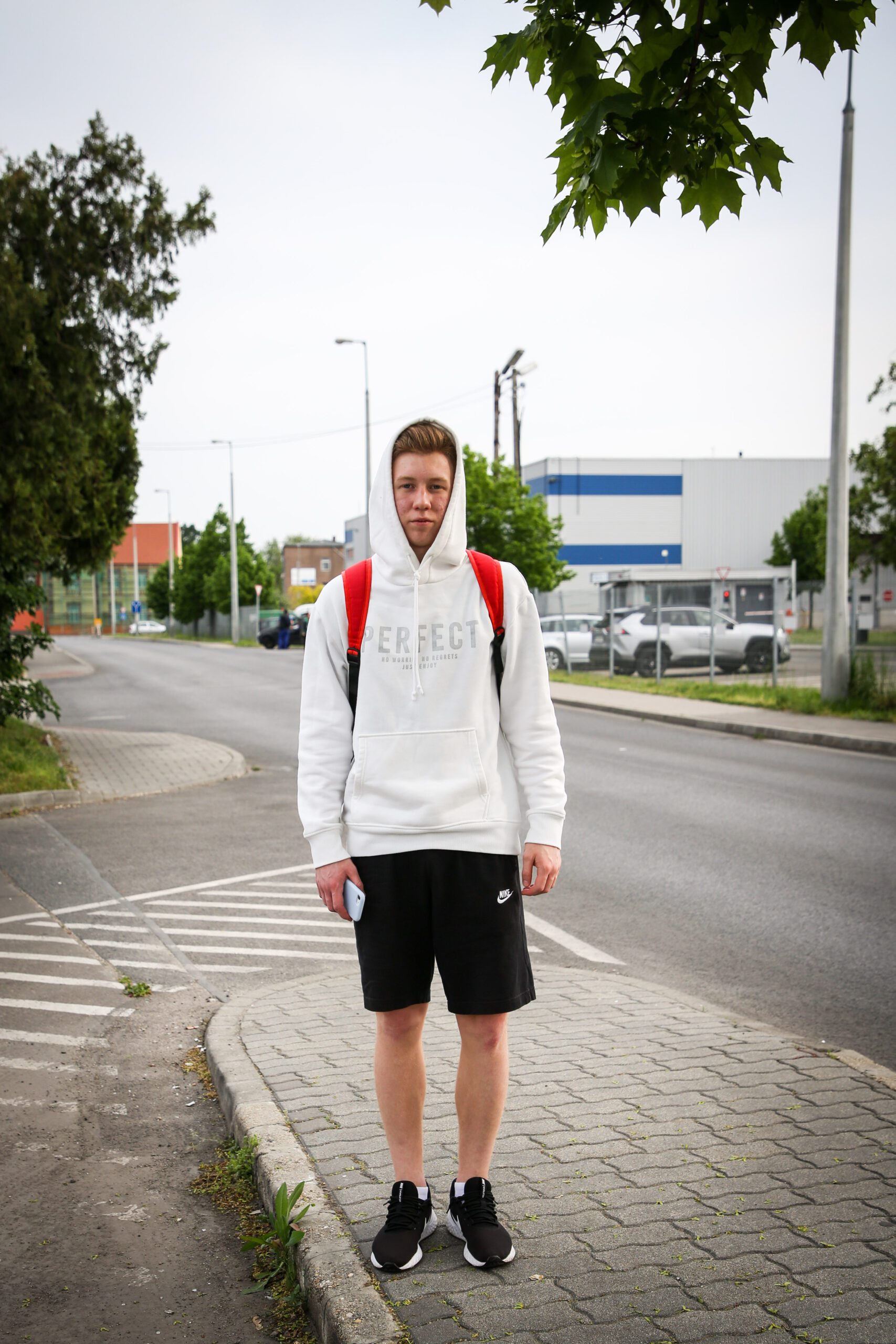

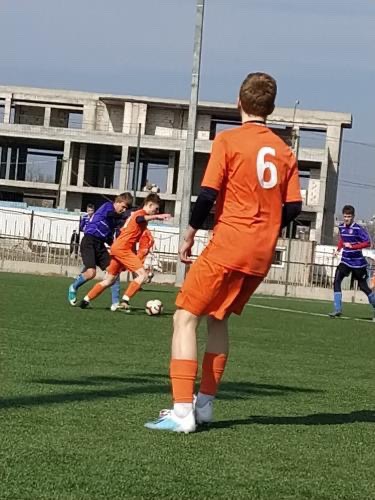

What do you expect from Hungary, how would you prefer to continue with your life?
I have the same dreams as in Ukraine. My dream was always to be a football player. Before the war, I played for the Under 19 side of Mariupol FC, and had a professional contract with them. Everything looked good, but then it all went to ashes, I haven’t trained or played for two months. If I had a possibility here to go on and work for the realisation of my dream, that would be the best, I’d be so happy. This is what I was preparing for in my whole life, that’s what this war took from me. My other wish is to be able to get my parents out of Mariupol and for them to move to Europe, or anywhere, just not in Mariupol or Russia. My dad has a job and a residence permit in Lithuania, he is already preparing for leaving the country. We are trying to persuade my mom, but my grandmother is old and sick, so she doesn’t want to go. Unfortunately, propaganda seems to be effective, the Russians are trying to convince the population to stay. My mother has started to believe their promises too, she doesn’t care for anything else as long there is peace and the city is rebuilt.
What are your plans for when the war is over? Do you want to return someday to Mariupol?
If I could continue with my football career here in Hungary, I’d definitely stay. Of course, I want to return to my hometown, but only if it stays in Ukraine. I would not want to return to Donetsk People’s Republic or the Russian Federation for example.
After conducting this interview, acting Hungarian champion and HIA partner Ferencvárosi TC offered Dima an opportunity to train with their U-19 squad. While the future looks uncertain for many Ukrainians living in Europe, Dima’s dreams to continue with his football career are still alive.
